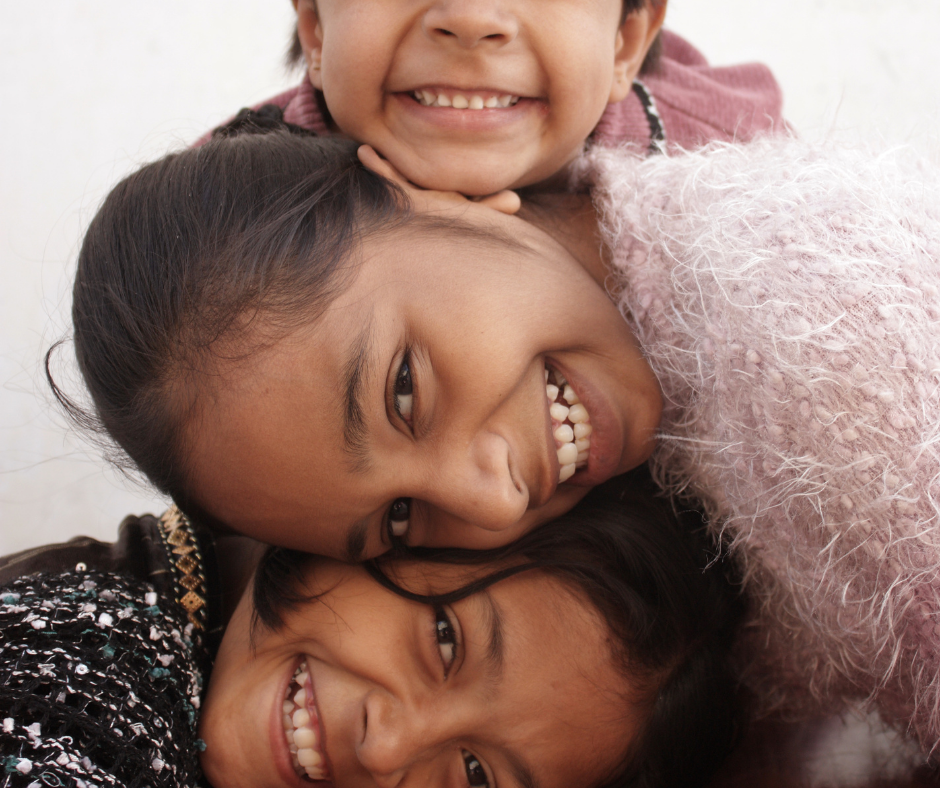About Childhood Sexual Development
Sexual health and social and sexual development are very complex topics. It is important to note that this information is a basic guideline about typical developmental stages only, and your child may not follow these exactly.
Our educators are experts and can provide you with advice or further information upon request, and our clinics can assist your whole family if you have any medical questions or concerns.
Typical development
Sexual development begins before birth. The following ‘ages and stages’ are guidelines only, but may give you a basic understanding of what to look out for and how your child’s needs will change over time.
Before birth
A child’s sex is typically determined at conception by their genes. Embryos with XY chromosomes become males and those with XX become girls. There are over 70 different genes located on the sex chromosome that define a baby’s sex.
Throughout the pregnancy, exposure to hormones decided by the baby’s genes affect the baby’s anatomy, physiology and behaviour.
- 7 weeks after conception all fetus genitalia are the same and are phenotypically (looks like) female
- After 7 weeks a fetus with a Y chromosome signals testosterone to be produced and male genitalia begin to develop. By week 9 a penis starts to form
- Penis and Clitoris remain same size until week 14
- Testicles will start to descend by week 26
- Fetus with XX have ovaries that begin to develop between week 11-12 after conception.
- At 20 weeks a female fetus will have 7 million primitive eggs, and then reduce to 2 million when born.
- At 22 weeks the vagina opens
Birth to Five
- Children will develop an interest in their own bodies
- They may find enjoyment in being nude
- They may develop curiosity about bodies – they may want to see or touch other people’s genitals or breasts, or might ask about them. This may be shown in games like ‘doctors and nurses’
- They may stroke, hold or explore their genitals (masturbation)
- Boys have erections and girls’ vaginas lubricate from birth
Five to Nine
- Puberty may begin for some children during this stage
- Children tend to prefer same sex groups
- They may have an increase in a sense of privacy about their own bodies
- They will continue to be curious about other children’s genitals and this may be shown in games
- Some children may use masturbation to self-soothe
- Their interest in conception, pregnancy and birth is likely to increase
- You may hear children start to use swearing and slang words to describe body parts
- The influence of their peer group increases
- Socially and emotionally, children are undergoing a new phase of brain development which affects their sense of identity and wellbeing. This may show itself in emotional responses to issues, or intense interactions with friends particularly at the end of this stage
Nine to Twelve
- Puberty usually begins at this stage – bodies visibly change. Girls may begin menstruating (get their period) and boys may start to experience wet dreams
- Children may experience their first ‘sexy’ feelings or romantic/attraction feelings
- Masturbation may lead to orgasm at this stage
- They may begin to kiss their friends
- Some children have their first girlfriends/boyfriends/partners at this stage
- There is an increase in the use of sexual language
- Many children may show an increased need for privacy
- Some children may have one or several ‘growth spurts’ (usually girls at this age)
- Some children may demonstrate exhibitionism (flashing of genitals or breasts)
- They may be engaging in social interaction online, which leads to an increase in social safety risks
Thirteen to Eighteen
- Young people may show a strong need for privacy at this stage
- Many will masturbate
- Some young people will have one or several ‘growth spurts’ (usually boys at this age)
- They will be seeking out information about sexuality
- At this stage many young people may be viewing materials for sexual arousal (eg music videos, movies, magazines, online pornography)
- They may engage in sexually explicit conversations with partners or use obscene humour with friends
- At this stage they are likely to express an interest in a relationship with someone of the opposite or same sex
- They may begin to engage in sexual activity. Ethical and legal responsibilities such as age and consent become essential at this stage.
- There is likely to be a strong reliance on mobile phones and online interactions in their friendships or relationships
- Puberty usually comes to an end at this stage
Your role in your child's development
You play an important role in teaching your child about bodies, keeping healthy and staying safe.
Your family and culture may have beliefs and values that you want to teach your child. Children may want to speak with you, however you may need to start the conversation for them.
Keep lines of communication open with your children. It is ok to take time to consider your response to a question rather than feeling you must answer straight away. You can find more tips here.
More information
Further information
We have a range of free downloadable resources covering relationships, sexuality, and sexual health which you can find through our Advice and Information library.
‘Talk Soon, Talk Often’ is a fantastic resource for parents and carers. It can be accessed here.
Related topics
We're here for you at every stage of life
We have clinics in Burnie, Launceston, and Hobart. Interpreter services available.


